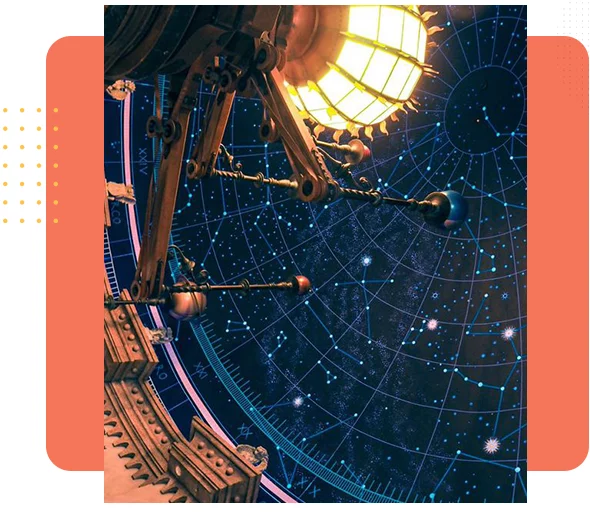One of the biggest blind spots among humans is the belief that our world is the only one out there. But both physicists and philosophers suggest that there may be many worlds — nay many more universes. If you do a deep-sea dive you realize that there is an extraordinary self-sustaining universe even under water.
And because these many worlds past and present, seen and unseen, are so intricately interlinked, what we do in this world matters even beyond our finite existence. Life right now is neither meaningless nor inconsequential. There is every reason to cultivate our minds and our spirit while in this world.
Certain Biblical passages suggest that the Abrahamic God has created — and perhaps destroyed — other worlds besides ours. In Hindu cosmology, the world is cyclically created and destroyed, meaning that there are infinite worlds.
If God created our world, it is entirely plausible from a religious perspective that God may have created other worlds like ours. Or, our imagination is delighted to take flights of fancy to describe how the other worlds might be. Whether or not these worlds exist, they have been creatively conjured up through time — in literature, film, and storytelling — reflecting man’s universal need to come to terms with this possibility.
In Buddhism, there is a vertical hierarchy of different realms of rebirth besides earth, including pure lands which are the realms where buddhas and bodhisattvas reside, and hellish realms, where “hungry ghosts” and beings who committed evil acts in previous lives reside. Taoism—somewhat similar to Buddhism—believes in the existence of realms where demigods reside.
In other Indian religions like Hinduism and Jainism, the universe is divided into various worlds that correspond fairly closely to those of Buddhism. In all 3 religions, there are 3 types of worlds: heaven and hell realms, and the earthly realms in between. In Buddhism, these are subdivided into a total of 6 worlds and in Hinduism they are subdivided into 14 worlds, or “lokas.” The heavenly lokas are called “Svarga,” the earthly lokas are “Prithvi,” and the hellish lokas are “Patal.”
You don’t have to subscribe to any particular belief system to recognize the logical possibility of the existence of other worlds. As revealed by NASA’s James Webb Space Telescope, thousands of galaxies can now be seen very clearly in stunning detail in a very tiny area of outer space suggesting an unfathomable amount of planets in the universe besides Earth. Whether any of those other planets are home to life, whether there are other universes besides our own, and whether there are parallel realms where gods and goddesses dwell are questions that remain a mystery, to which different religions offer their own unique, speculative, and provisional answers.

Christianity
“Jesus said, ‘My kingdom is not of this world. If it were, my servants would fight to prevent my arrest by the Jewish leaders. But now my kingdom is from another place.”
—The New Testament, Christian text
“If I find in myself a desire which no experience in this world can satisfy, the most probable explanation is that I was made for another world[…]I must keep alive in myself the desire for my true country, which I shall not find till after death; I must never let it get snowed under or turned aside; I must make it the main object of life to press on to that other country and to help others to do the same.”
—C.S. Lewis, writer and Christian theologian
Islam
“It is God who created seven heavens and a similar [number] of earths. His command descends throughout them. So you should realize that He has power over all things and that His knowledge encompasses everything.”
—The Qur’an (65:12), Muslim text
Judaism
“God carries everything beneath His arms. With His right arm he carries the heavens, and with His left arm he carries the earth. How much do God’s arms carry? The left carries the 18,000 worlds that surround this world. The right carries 120,000 worlds of the World to Come.”
—Tree of Souls: The Mythology of Judaism, collection of Jewish writings
Baha’i
“That world beyond is a world of sanctity and radiance; therefore, it is necessary that in this world he should acquire these divine attributes. In that world there is need of spirituality, faith, assurance, the knowledge and love of God. These he must attain in this world so that after his ascension from the earthly to the heavenly Kingdom he shall find all that is needful in that life eternal ready for him.”
—‘Abdu’l-Bahá, Baha’i leader
“Likewise, the rewards of the other world are the eternal life which is clearly mentioned in all the Holy Books, the divine perfections, the eternal bounties, and everlasting felicity. The rewards of the other world are the perfections and the peace obtained in the spiritual worlds after leaving this world.”
—‘Abdu’l-Bahá, Baha’i leader
Buddhism
“What worlds are there herein? I’ll tell you. In these seas of fragrant waters, numerous as atoms in unspeakably many buddha-fields, rest an equal number of world systems. Each world system also contains an equal number of worlds. Those world systems in the ocean of worlds have various resting places, various shapes and forms, various substances and essences, various locations, various entryways, various adornments, various boundaries, various alignments, various similarities, and various powers of maintenance.”
—Avatamsaka Sutra, Buddhist text
Hinduism
“How many fires are there, how many suns, how many dawns, how many waters?”
—Rig Veda (10:88), Hindu text
“Insects in a fig Cannot imagine Worlds other than the fig.
There are so many fig-trees In these woods: And so many more Vast clusters of stars.”
—Hindu poem
Daoism
“Our time in this world is a journey through the cycle we call life. As guests, we linger for a while in this realm before we depart for another. And who can tell how long this traveler will stay in the next realm before embarking on another visit to the realm of the living?”
—The Book of Lieh Tzu, Daoist text
“The sage will not speak of what is beyond the boundaries of the universe—though he will not deny it either. What is within the universe, he says something about but does not pronounce upon.”
—The Book of Chuang Tzu, Daoist text

Confucianism
“The identification of the high ancestors of humanity with tian, an ambiguous term encompassing a deity and the physical sky, blurs categories that usually separate the human world from the natural world.”
—Ruth H. Chang, scholar of East Asian religions
Modern Philosophy and Theology
“The uniquely human capacity for detached, creative thought, which includes the ability to conceive of imaginary beings and alternative worlds, stands behind literature, art, science, and, of course, religion.”
—Todd Tremlin, scholar of Religion
“The content of these individual worlds, of course, is very different in each case, but the process of creating a world is a universal human attribute.”
—Jeffrey J. Kripal, Historian of Religion


